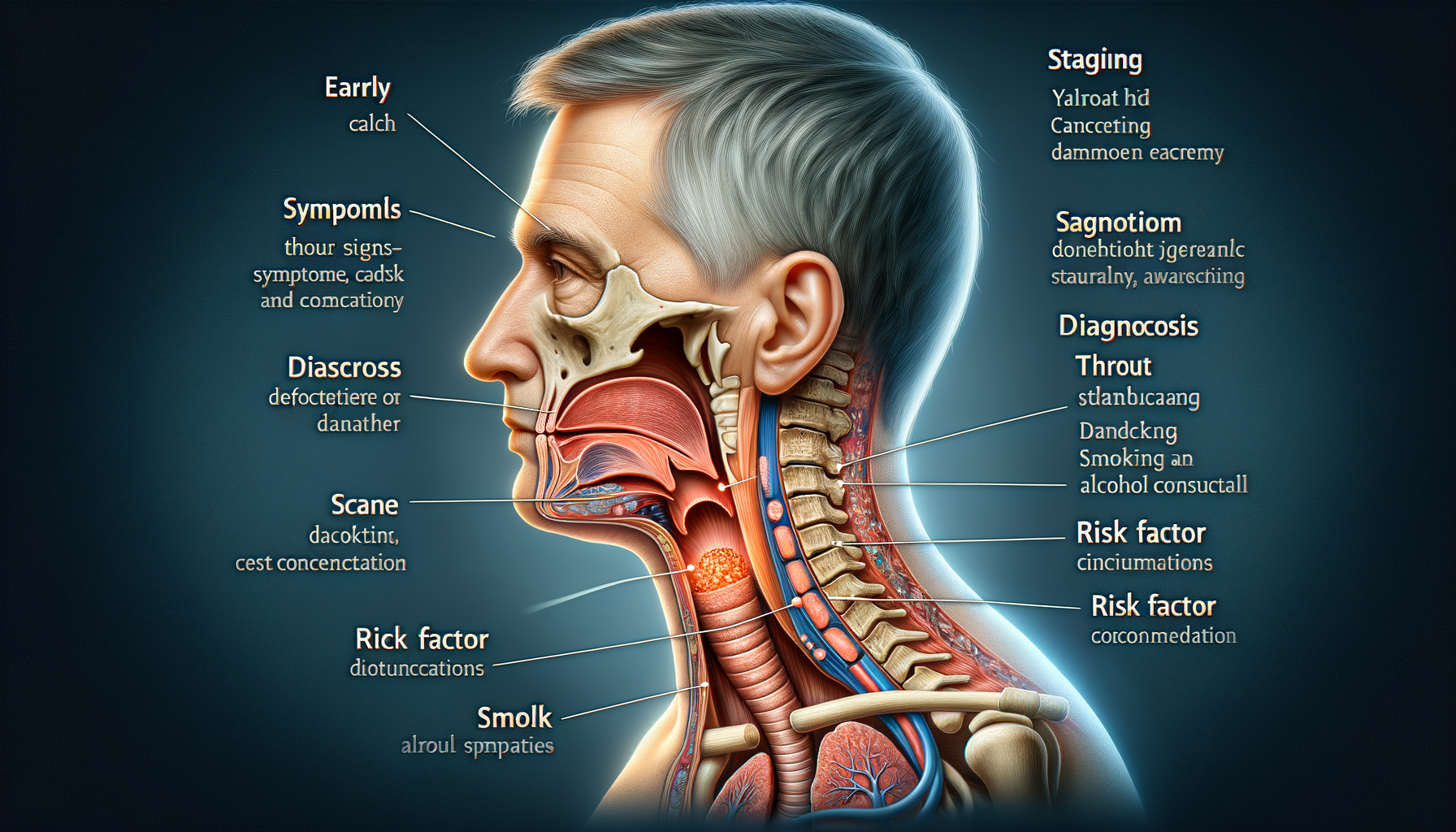Introduction to Throat Cancer
Throat cancer, a type of head and neck cancer, affects the pharynx, larynx, or tonsils. Recognizing the early signs and symptoms is crucial for timely diagnosis and treatment. This article delves into the early indicators of throat cancer, the diagnostic process, and the common risk factors associated with this condition.
Early Signs and Symptoms of Throat Cancer
Identifying the early signs and symptoms of throat cancer can lead to better outcomes. Some common symptoms include:
- Persistent sore throat
- Difficulty swallowing
- Hoarseness or changes in voice
- Unexplained weight loss
- Swelling or lumps in the neck
These symptoms might be mistaken for less serious conditions, such as a cold or allergy. However, if they persist, it is important to seek medical advice. Early detection through awareness of these symptoms can significantly impact treatment success.
Diagnosing and Staging Throat Cancer
Throat cancer diagnosis involves a series of tests and examinations. Initially, a physical examination of the throat and neck is conducted. If cancer is suspected, further tests such as endoscopy, biopsy, and imaging tests (like CT or MRI scans) are used to confirm the diagnosis.
Once diagnosed, staging is the next step. Staging determines the extent of the cancer and helps in planning treatment. It ranges from Stage I (localized) to Stage IV (advanced spread). Understanding the stage of cancer is crucial for determining the appropriate treatment approach.
Common Risk Factors Linked to Throat Tumors
Several risk factors are associated with the development of throat cancer. These include:
- Tobacco use, including smoking and chewing tobacco
- Excessive alcohol consumption
- Human papillomavirus (HPV) infection
- Exposure to certain chemicals and asbestos
- Poor diet lacking in fruits and vegetables
Understanding these risk factors can aid in prevention strategies. Lifestyle changes, such as quitting smoking and reducing alcohol intake, can significantly lower the risk of developing throat cancer.
Conclusion: Awareness and Prevention
Throat cancer is a serious condition that requires early detection and awareness of its symptoms and risk factors. By understanding the signs, the diagnostic process, and the associated risks, individuals can take proactive steps towards prevention and early intervention. Regular check-ups and a healthy lifestyle are key components in reducing the risk of throat cancer.




Leave a Reply